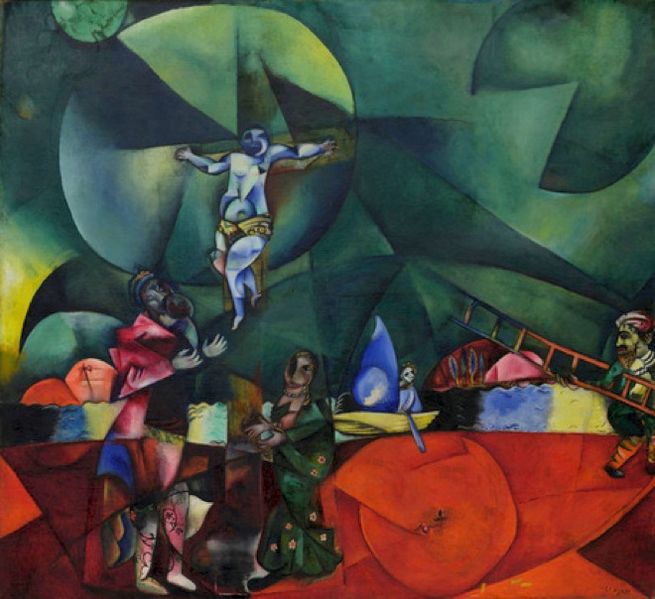
God has wired humanity to exist as storied creatures. This conviction manifests itself in various ways and in a variety of disciplines.
Take for example philosophy and theology. The Berlin University philosopher theologian Hegel sought to demonstrate that the Christian faith illustrates best in ordinary and historical language the conceptual reality of God’s own historicized being. The Danish philosopher theologian Kierkegaard countered Hegel’s assertion by arguing for the scandal of particularity. For Kierkegaard, Jesus does not illustrate a prior and more fundamental reality that is independently true of all humanity. Those in Kierkegaard’s school maintain that Jesus is the explication of truth, and we only enter into truth through participation in his life. Christians of various persuasions find themselves situated somewhere between Berlin and Copenhagen on the question of history and theology, and not simply between Athens and Jerusalem on the question of philosophy and theology.
I edit a journal titled Cultural Encounters: A Journal for the Theology of Culture, which will soon release an issue on theology and humanity’s storied existence in cultural context. While I personally resonate with Kierkegaard’s bold rejoinder to Hegel, we have not asked the diverse and wide-ranging contributors of this issue of the journal to take sides on this prior philosophical debate. Rather, we have asked that they simply articulate what they see as the import of story for theology and Christian existence. You will find in this issue a rich assortment of perspectives that highlight the significance of story for theology and culture.
Perhaps the contributors would all agree to varying degrees that the Christian faith unites the deeply philosophical and mystical in a creative historical synthesis. The eternal Word of God became historical flesh (Jn 1:1, 14). Each and all of us in our historical-cultural settings are invited to participate in Jesus’s life through the eternal Spirit.
By no means does the preceding claim have import only for the theological scholarly guild. Jesus’s extraordinary being was manifest in ordinary time and space among common people using common language. Some philosophers will critique Christian Scripture for its unrefined and extremely ordinary prose. They would prefer something more refined, perhaps even esoteric. But as John Steinbeck writes in his epic retelling of the Cain and Abel story in East of Eden, “The strange and foreign is not interesting–only the deeply personal and familiar.” The latter you will find not only in East of Eden and the biblical narrative Steinbeck seeks to illustrate in modern verse. You will also find the deeply personal and familiar in the pages of Cultural Encounters’ forthcoming issue on humanity’s storied existence. The new issue on theology and story in cultural context will be released sometime next week.
In the soon-to-be-released issue (volume 14/1) of Cultural Encounters: A Journal for the Theology of Culture, you will find the following articles written by:
– Bret Saunders, “Listen to the Stories”: The Importance of the Art of Storying in Education and Life
– Benjamin S. Wall, Disability and Theology
– S. Joshua Swamidass, A Narrative Theology of Martians, Narnians, and Neanderthals
– Wm. Paul Young, The Power of Story
– Matthew Farlow, Enter the Drama: His Story Becoming My (Our) History
– Nancy Haught, Meeting Hagar, Over and Over
– Phil Wyman, The Wild Ambivalent Power Tools of Narrative
– Rodney Clapp, Story: The Medium of Salvation
– Tony Kriz, Story and Theology
With book reviews written by:
– Cynthia Shafer-Elliott, Searching for Sunday: Loving, Leaving, and Finding the Church
– Kelly Liebengood, Saved by Faith and Hospitality
– Michael Gurney, Philosophical Foundations for a Christian Worldview, 2nd edition
– Bobby Grow, Faith, Freedom and the Spirit: The Economic Trinity in Barth, Torrance, and Contemporary Theology
– Hannah N. Grady, How Repentance Became Biblical: Judaism, Christianity, & the Interpretation of Scripture
– Hannah N. Grady, Christian Women in the Patristic World: Their Influence, Authority, and Legacy in the Second Through Fifth Centuries
– Josh de Keijzer, The Hidden God: Luther, Philosophy, and Political Theology
To subscribe to Cultural Encounters, click here and go to subscriptions. To express well your own storied existence, follow Steinbeck’s recommendation and share “the deeply personal and familiar.” To reflect well on God’s storied existence, take to heart the account of Jesus’ life, death, burial and resurrection until his narrative becomes your own. You will never be the same again.












